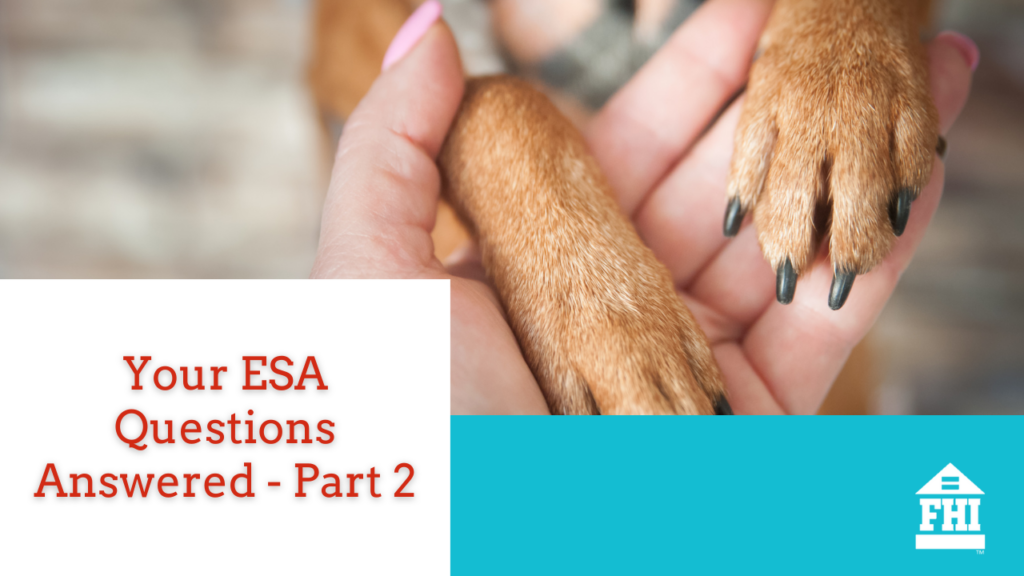Once again, we find ourselves delving into the intricate discussions surrounding emotional support animals in housing—a topic so rich and evolving it demands our continued attention. From the obligations of housing providers in obtaining liability insurance to navigating the nuances of the Fair Housing Act in college settings, and from the permissible questions about ESAs to managing unexpected scenarios like pregnancies, there’s an endless depth to explore. Through this renewed exploration, we aim to unravel further the complex interplay of rights and responsibilities between housing providers and residents, ensuring ESAs are accommodated within our communities with the care and consideration they require.
Estimated reading time: 4 minutes

Table of contents
Can liability insurance be required for an ESA that is a pit bull?
This is a common question due to community concern surrounding the pit bull terrier breed and the injuries that could possibly come as a result. A short answer to this question is yes, a liability policy should be purchased, but only by the housing provider. Let’s explain this further. The housing provider needs to make sure that they have a type of liability insurance that covers them if an injury of any kind occurs; this includes injuries stemming from any animal. You cannot require the resident to carry a separate, independent liability policy for their emotional support animal, no matter the breed.
Can college housing deny an ESA?
Even though college housing is governed by different rules and regulations under the Fair Housing Act, this isn’t one of them. In this light, dormitories and the like are viewed as any other housing, and therefore, an ESA cannot be denied. If a student has a verified disability as well as a verified need for that animal, then it is up to the housing provider to make accommodations for that student and their ESA.
What questions can a housing provider require in regard to an ESA?
There is a firm line between appropriate and inappropriate questions you can require a tenant to answer in regard to their ESA. Identification questions are considered safe, such as questions about the size, appearance, and color of the animal. Even the breed of the animal, as well as a picture that can be attached to the resident’s file, is safe. This ensures that if the animal were to escape the unit, then management would have the identifying markers to find it safely. However, questions such as the history of the animal or whether it has ever been aggressive can be asked, but only if this question is also asked in regards to other pets that live on the property.
What if an ESA ends up pregnant and has a litter?
It comes as no surprise that this situation has been reported many times. A suggested way to avoid this from happening on your property is to have policies requiring all animals on the property to be spayed/neutered. You also need to be aware of exceptions, such as if a service animal is going to be used to breed other service animals. Clearly, a reasonable accommodation would have to be made in this scenario. Now, if an ESA does happen to have a litter on your property, you do not have to permit the kittens/puppies to stay on the property. They can remain in the apartment for as long as necessary until they are weaned safely. Then, they would need to leave the unit.
As always, the topic of emotional support animals can be nuanced and complicated when dealing with specific situations. However, to put it simply, ensuring that your property’s policies are fair housing compliant makes these scenarios much easier to deal with. As we continue to navigate the complexities of accommodating emotional support animals in housing, it’s clear that fostering understanding and dialogue between housing providers and residents is key to staying fair housing compliant!
Couldn’t find an answer to your question? We have two other articles that further delve into this topic: Your ESA Questions Answered and What Does The Fair Housing Act Say About Emotional Support Animals?. For our property managers, we also offer the Fair Housing Focus: Assistance Animals course, which is built to equip your team with the proper skills to accommodate residents with ESAs.
You May Also Like:
